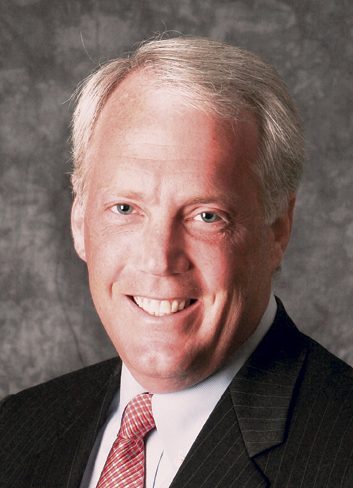TOP WAYS TO USE CASH IN YOUR AGENCY

TOP WAYS TO USE CASH IN YOUR AGENCY
Learn how to manage your liquidity and earn top returns
If your agency is doing well, you’re likely sitting on some cash that you can invest back into your business. But what’s the best way to use this capital? And how do you decide when to use your own funds versus borrowing from a bank?
I often tell agency owners the first step is to ascertain whether you are a lender or a borrower. Every agency falls somewhere on a continuum between being a provider and a user of capital.
If you’re a provider of capital, you’re making deposits and you have cash on hand. You need to pay attention to how you manage that liquidity. That means understanding the basics of cash management and the relationship you have with your bank: the fees, the return on your deposits, how much flexibility you have in moving money to capture yield. Those returns can add real value and can be used as a tool to improve your profitability.
Extra cash can be put to good use by investing in your agency, creating even more value and generating future returns when you decide to sell.
Squeezing even incremental returns from your cash flow can pay handsomely. It’s basically “free money” that goes right to your bottom line. Consider, too, the multiplier effect it has on agency value. Let’s assume your agency has a value of six times its cash flow and you’re able to increase your cash yield by $10,000. You’ve actually increased the value of your agency by $60,000 (because of the multiplier). That’s a pretty handsome return!
Putting extra cash to good use
That extra cash can also be put to good use by investing in your agency, creating even more value and generating future returns when you decide to sell. I liken it to a home owner who’s received a bonus from her employer. She may be tempted to spend that extra cash on a dream vacation, but the better choice might be to replace the aging furnace in the basement. A new, energy-efficient furnace not only reduces heating bills, but it also adds value to the house. At some point the furnace absolutely will need to be replaced. But if the home owner has already spent her capital, she’ll be forced to borrow—making the purchase of a new furnace even more expensive and possibly tying up funds she may need for other things, such as a new roof or car.
The same can be said for your agency. If you’re doing a good job of managing your capital, you should have additional funds you can free up each month to invest in the equivalent of an energy-efficient furnace. Indeed, infrastructure is one of the smartest investments you can make in your agency and one of the first options to consider if you have additional cash on hand. Like the home owner, you may be tempted to put off spending on new equipment. Sure, the phones work, and you have computers. But how old are they? How efficiently are you running your office? New systems can increase staff productivity, reduce downtime, and improve customer service. Upgrading your equipment and software is essential to growth, and automation can make you more competitive and attractive to a buyer if you are selling your agency.
When I speak to owners who want to grow their agencies, they usually tell me their primary goal is to increase revenue. There are several ways to do that, the top ones being adding new producers and improving customer service, followed closely by advertising and referrals. Tapping your extra cash is the perfect way to grow in these areas.
Growing organically
I’m a huge proponent of growing organically. Simply put, organic growth is the value you create when you invest in your own agency. Inorganic growth occurs when you purchase another agency or a book of business that someone else has developed. Organic growth is almost always your best bet. It has a better return because you’re not borrowing money and tying up your capital. Organic growth takes time and discipline, but it offers the highest rewards.
Although inorganic growth is an attractive strategy when agency values are rising, old-fashioned “sweat equity” still delivers a better return. McKinsey & Company published an interesting analysis last year, The Value Premium of Organic Growth, that bears this out. After looking at the performance of 550 U.S. and European companies over 15 years, McKinsey found that those with more organic growth generated higher shareholder returns than those whose growth relied more heavily on acquisitions. The main reason: Companies don’t have to invest as much up front for organic growth, and the return on capital is lower for inorganic growth.
To use our house analogy again, consider two home owners with identical incomes and nearly identical houses. One has invested in her house each year whereas the other has deferred improvements in favor of a luxury car. Five years go by, and each decides to sell her house. The first one is told by her real estate agent that the home will fetch top dollar and doesn’t need any work to get it ready for market. The second one is told she will need to spend $50,000 in upgrades just to make her house comparable to others in the neighborhood. Which home owner would you rather be?
Sometimes making improvements to your house, whether it’s new windows, carpeting, or an updated bathroom, isn’t very exciting. Yet the payoff is much greater than if you didn’t do anything at all. In the agency world, we measure that payoff in increased sales, new business, and profitability. Firms that enjoy high levels of organic growth also tend to have higher percentages of new commissions compared to the prior year, which is sometimes called sales velocity. Of course, commissions are just one measurement. You can also look at new leads, policies written, closing ratios, and retention rates. Whatever you look at, chances are the agency owners who invested in their business are faring better than their peers who did not.
Organic growth also means finding ways to reduce costs and create greater efficiencies. Think about what happens when a national company buys a local agency. The first thing it does is start evaluating expenses. The new owner invariably does the things you may have thought about but didn’t have the discipline to do yourself: reduce your staff, limit producer compensation, and invest in a new office management or CRS system.
Watching your expenses also frees up more capital that you can use to grow your agency. It allows you to invest in professional development for your team, add a customer service representative, or purchase additional advertising.
When should I borrow?
To be sure, there are times when even well-run agencies should think about borrowing. Instead of dipping into your working capital, it may make sense to borrow to pay the cost of bringing on a new producer or acquiring new office equipment. Even fast-growing agencies may decide to borrow for some expenses, such as buying a building versus leasing space.
Agency perpetuation and mergers and acquisitions are perhaps the greatest reasons why an agency might decide to borrow. As agency principals approach retirement, they begin to consider ways to pass their firm on to the next generation—whether that’s family members, their partners, or an outside buyer. These kinds of succession plans generally involve some type of borrowing. Agencies that are looking to enter new markets may choose to purchase a book of business or another agency. These acquisitions typically involve a loan or some type of buyout.
Remember, investing in your agency is a lot like investing in a house. The more you can “do it yourself,” the greater the returns and the more capital you’ll be able to retain to do other things you want, such as eventually retire. Having a plan for how to spend your capital prudently and strategically is the surest way to grow and successfully perpetuate your agency.
 The author
The author
David Tralka is president and CEO of InsurBanc, a division of Connecticut Community Bank, N.A. He is responsible for keeping the bank focused on being an innovative provider of financial products and services for the independent agency community. An expert on agency mergers and acquisitions, agency perpetuation and financing, he has presented at numerous venues nationwide.











